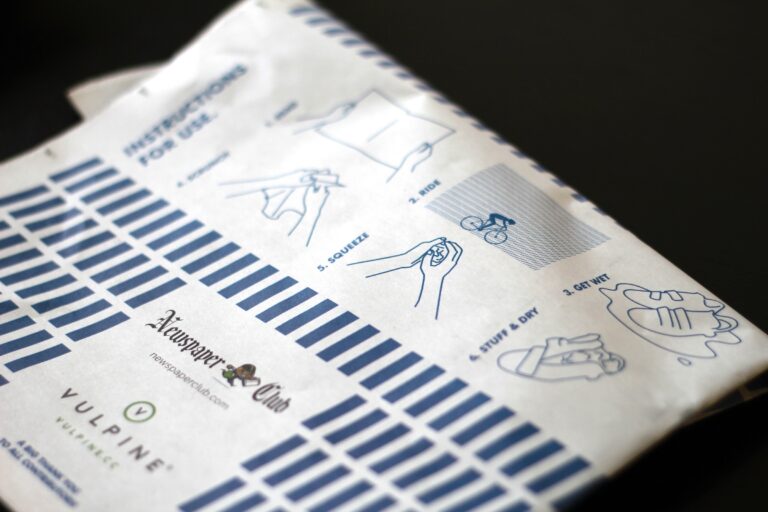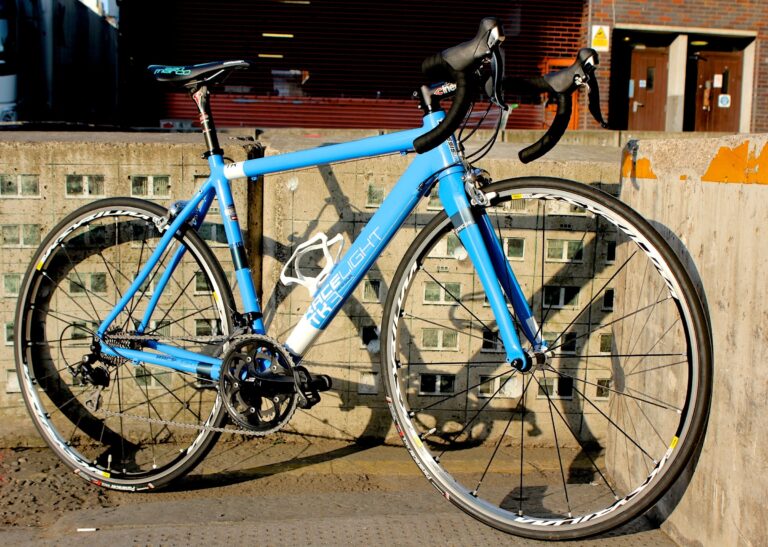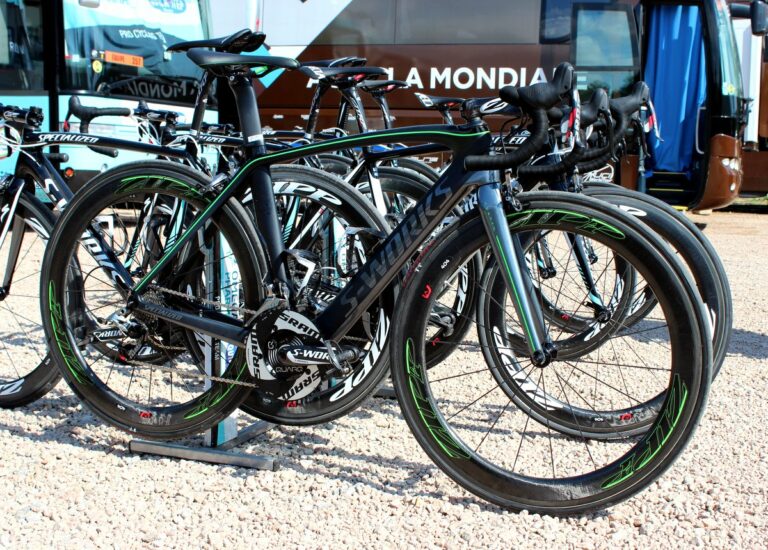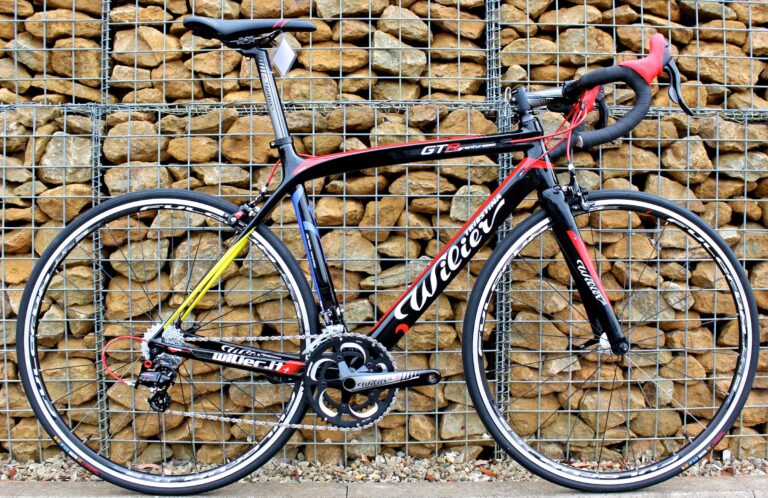2013. The Giro d’Italia. Stage twenty and the summit of Tre Cime di Lavaredo.
Three snow-caked Colombians cross a finish line drawn at 2,304 metres to finish in second, third and fourth positions. All are in a state of exhaustion. All are wearing shorts, sans knee warmers, exhibiting a collective national disdain for the worst climatic conditions Europe can offer.
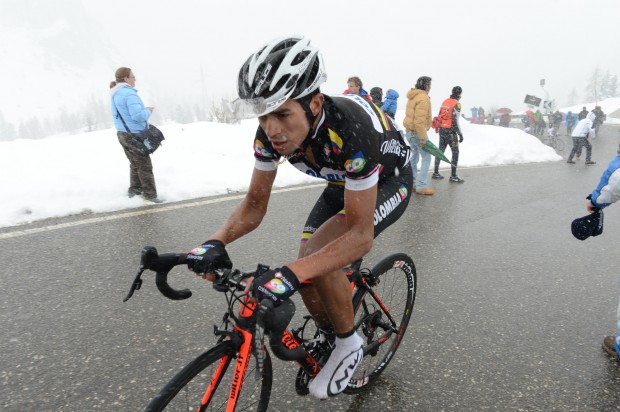
The first of the trio to cross the finish line, Fabio Duarte, is riding in the colours of Team Colombia, a UCI Pro Continental squad with state backing, comprised, with one exception, of Colombian riders. The man on his wheel, Rigoberto Uran (Team Sky), has done enough to finish second overall, and the man on his wheel, Ag2r-La Mondiale’s Carlos Betancur, has sealed victory in the best young rider competition.
These are high times for Colombian cycling, the highest perhaps for thirty years, since an all-amateur, all-Colombian team rolled out from the Grand Départ in Fontenay-sous-Bois for the 1983 Tour de France.
The last half-century of Colombian cycling, its significance to the Colombian people, and its relationship with the French race is the subject of an illuminating contribution from Klaus Bellon Gaitán to a special edition of The Cycling Anthology, a recently published collection of essays on the Tour de France (Peloton Publishing, £7.99).
“Colombia, a nation that has endured hardship in every imaginable sense for its entire history, simply seems to understand the martyrdom that is inherent in cycling,” Bellon observes.
A deeply Catholic nation, Colombia’s reverence for suffering offers a cultural synergy with cycling. Economic hardship has created a further bond. In more affluent countries, the bicycle is an object of leisure; in Colombia, it is a means of transport. Bellon quotes the philosopher, Corey Shouse Tourino, Associate Professor of Hispanic Studies at St John’s University, Minnesota, who compares the Colombian’s oneness with the bicycle with the Frenchman’s routine consumption of wine. Only in bourgeois cultures are such daily interactions venerated, he argues.

Team Colombia has adopted the nickname, the Escarabajos. The ‘flying beetle’ moniker was first applied to Ramón Hoyos, five times a winner of the Vuelta a Colombia, but has broadened to encompass all Colombian climbers, including those who first staked a claim in the Tour de France. The Escarabajos of the mid-to-late 1980s lit up its mountain stages like flashbulbs.
Four decades later, Team Colombia will hope to receive the ASO’s golden ticket. The national team who contested the 1983 race didn’t wait long for success. On stage ten, Patrocinio Jiménez rode in a breakaway with Robert Millar, the Scotsman and Colombian making a fine pairing on the road to Luchon. Millar claimed the stage and Jiménez, the polka dot jersey.
The following year Luis Herrera, the darling of Colombian cycling, became the first of eight of his countrymen to win a stage of La Grande Boucle in the ensuing 30 years (expect a ninth if Uran, Henao and Betancur are selected for this year’s Tour). Bellon ascribes Herrera’s undiminished popularity in his homeland to a career-long loyalty to Colombian teams, and contrasts it with the status afforded the similarly gifted Fabio Parra, whose podium appearance in Paris at the end of the 1988 Tour was achieved as a rider with the Spanish Kelme squad.
Bellon quotes an account published in a 1955 edition of El Espectador from a young reporter called Gabriel Garcia Marquez, in which the future Nobel prize winner marvels at the ability of radio broadcasts from the Vuelta a Colombia to empty Bogota’s streets. Television came later, and Bellon’s observation that Colombia was the first country to broadcast every stage of the Tour de France in its entirety (“not in France, Belgium, or Italy”), is a profound statement on the country’s relationship with cycling. Radio remained king, however; a medium by which the average Colombian could stay across the race while working. Varta’s sponsorship of the 1983 Tour team increased its share of the battery market by 11 per cent.
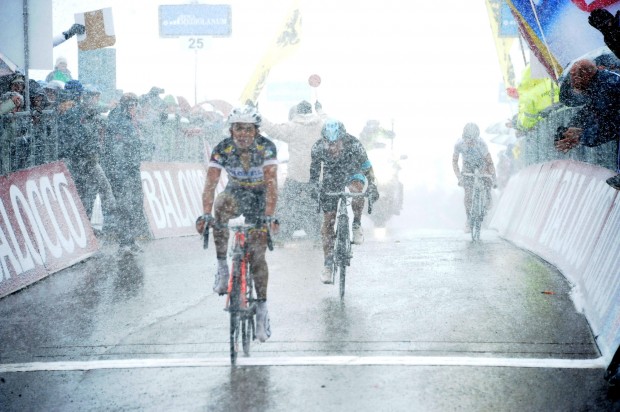
Bellon also includes Hector Urrego among his sources, recording the Colombian journalist’s experiences on the 1983 Tour, pumping as many coins as he could carry into a payphone to broadcast reports of the race to an enraptured nation more than 8,500km away, breaking off only to play a cassette of pre-recorded adverts into the receiver.
Many of the contributions to this edition of The Cycling Anthology concern the business of reporting the Tour de France. Ellis Bacon’s tribute to Jim Ramsey’s nine-and-a-half minute montage from Channel 4’s coverage of the 1989 Tour is likely to inspire similarly fond reminiscence among readers whose formative experiences of the race occurred in the same era. Ned Boulting’s portrait of Brian Venner, executive producer of all of British television’s coverage of the race, is revealing and affectionate. Brendan Gallagher’s observations on the sometimes perilous tenor of life inside the Tour journalist’s hire car (“Everybody should experience at least one high-speed mountain evacuation before they shuffle off this mortal coil”) are very funny.
Elsewhere, the essays vary from riding the Tour to celebrating its heroes. Daniel Lloyd, alone among the authors in having contested the race, provides a self-effacing memoir of his own contribution to cycling’s greatest race, while Richard Williams’ portrait of boyhood Tour de France hero, Charly Gaul, ‘the Angel of the Mountains’, is a touching account recognisable to anyone inspired in their early years by the idiosyncrasies of a particular rider.
For cycling fans of a certain age (this correspondent included), Colombian cyclists will always hold a mystical allure. The appeal of those who illuminated the Tours of the 1980s remains undiminished. Bellon’s thoroughly researched contribution to The Cycling Anthology provides a cultural context in which their achievements can be truly appreciated. Should Team Colombia emulate the achievement of their countrymen some 30 years earlier and gain an invitation to the Tour in the coming years, Bellon will be far from alone in celebrating.

